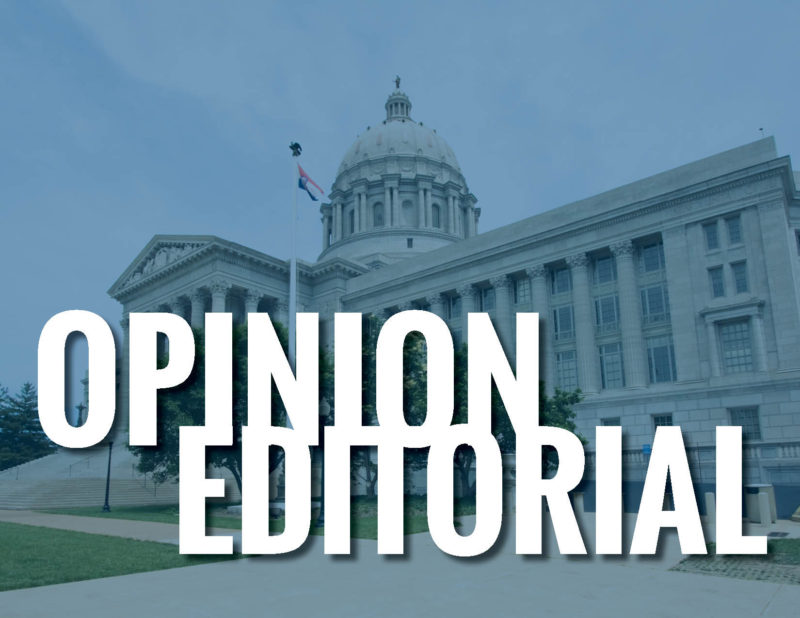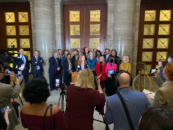Imagine this:
You wake up in the morning with a fever, a dry cough, and body aches. Those are signs of COVID-19, and you know you should check with a doctor.
But you lost your job in the pandemic and with it your health insurance. If you pay the doctor, you might not make the rent.
So, you hold off. Maybe it’s just the flu. Or, maybe soon you’ll be dead, after spreading the virus through your family and neighbors.
A lot more people are in that fix these days.
Half a million Missourians — 9 percent of the population — were uninsured before the pandemic. Now it’s much worse.
The Social Policy Institute (SPI) at Washington University in St. Louis conducted a nationally representative survey of households in the U.S. Among the low- and moderate-income respondents who had health insurance before the pandemic, 16 percent of Hispanics, 17 percent of blacks, and 22 percent of white households lost coverage due to a job loss caused by COVID-19 as of April. There were glaring declines in their use of health services — as the virus stalks us all.
Missouri voters can fix that. The August ballot offers a referendum to expand Medicaid health coverage in Missouri.
It’s a no-brainer in a pandemic. A yes vote gives health coverage to well more than 270,000 people, saves rural hospitals from failure, and brings $1.6 billion in federal dollars into Missouri, creating jobs. It can be done at no net cost to the Missouri state budget. It may actually save the state money, according to Wash U’s Center for Health Economics and Policy.
Sixty percent of Americans are of low- and moderate-income (LMI). The COVID virus is devastating for their health and finances. Not having insurance makes people forego needed care because they can’t pay the high costs. Survey data collected over the first three months of the pandemic show how being uninsured can lead to long-term health consequences:
- 13 percent of LMI individuals did not seek medical care when needed, and
- Nearly 10 percent of LMI individuals either delayed filling a prescription for medication or didn’t fill it at all.
Once the pandemic subsides, we will see a decline in health outcomes among these luckless people.
Delaying or skipping medical care also means that individuals are less likely to be tested for the coronavirus. That will limit Missouri’s ability to trace infection routes and control outbreaks.
Even more frightening, many won’t seek care if they show symptoms of COVID-19 or other infectious diseases.
Unexpected medical costs are nearly always a major financial shock for low- and moderate-income households and such shocks are amplified during a pandemic. The survey found almost 1 in 10 respondents reported experiencing unexpected major out-of-pocket medical expenses during the first three months of the COVID-19 pandemic. However, despite experiencing a need for medical care, almost 2 in 5 of these respondents had reduced their spending on medical/dental care during the pandemic. Another 1 in 10 respondents reported using their federal CARES relief payment for medical/dental expenses.
Even with CARES payments, many uninsured LMI households are facing mounting unpaid medical bills. Medicaid expansion in Missouri is needed now more than ever.
Before the pandemic, if Medicaid expansion had been passed in Missouri, an estimated 270,000 Missouri residents would have been given access to health insurance. Now, expanding Medicaid would likely benefit many more Missourians — and importantly — without cost to the state budget.
The COVID-19 pandemic has shaken every person at their core, but those with access to health care have been better able to navigate the pandemic than those without health insurance. Expanding Medicaid would not only ensure that LMI individuals receive affordable and timely care, thus potentially preventing additional health complications during and beyond the pandemic, but expanding Medicaid is simply the right thing to do.

Michal Grinstein-Weiss is the Shanti K. Khinduka distinguished professor at Washington University’s Brown School. Brinda Gupta is the program coordinator for the Social Policy Institute.












